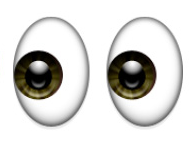 Who Owns the Internet? — What Big Tech’s Monopoly Powers Mean for our Culture is Elizabeth Kolbert‘s review in The New Yorker of several books, one of which I’ve read: Jonathan Taplin’s Move Fast and Break Things—How Facebook, Google, and Amazon Cornered Culture and Undermined Democracy.
Who Owns the Internet? — What Big Tech’s Monopoly Powers Mean for our Culture is Elizabeth Kolbert‘s review in The New Yorker of several books, one of which I’ve read: Jonathan Taplin’s Move Fast and Break Things—How Facebook, Google, and Amazon Cornered Culture and Undermined Democracy.
The main takeaway for me, to both Elizabeth’s piece and Jon’s book, is making clear that Google and Facebook are at the heart of today’s personal data extraction industry, and that this industry defines (as well as supports) much of our lives online.
Our data, and data about us, is the crude that Facebook and Google extract, refine and sell to advertisers. This by itself would not be a Bad Thing if it were done with our clearly expressed (rather than merely implied) permission, and if we had our own valves to control personal data flows with scale across all the companies we deal with, rather than countless different valves, many worthless, buried in the settings pages of the Web’s personal data extraction systems, as well as in all the extractive mobile apps of the world.
It’s natural to look for policy solutions to the problems Jon and others visit in the books Elizabeth reviews. And there are some good regulations around already. Most notably, the GDPR in Europe has energized countless developers (some listed here) to start providing tools individuals (no longer just “consumers” or “users”) can employ to control personal data flows into the world, and how that data might be used. Even if surveillance marketers find ways around the GDPR (which some will), advertisers themselves are starting to realize that tracking people like animals only fails outright, but that the human beings who constitute the actual marketplace have mounted the biggest boycott in world history against it.
But I also worry because I consider both Facebook and Google epiphenomenal. Large and all-powerful though they may be today, they are (like all tech companies, especially ones whose B2B customers and B2C consumers are different populations—commercial broadcasters, for example) shallow and temporary effects rather than deep and enduring causes.
I say this as an inveterate participant in Silicon Valley who can name many long-gone companies that once occupied Google’s and Facebook’s locations there—and I am sure many more will occupy the same spaces in a fullness of time that will surely include at least one Next Big Thing that obsolesces advertising as we know it today online. Such as, for example, discovering that we don’t need advertising at all.
Even the biggest personal data extraction companies are also not utilities on the scale or even the importance of power and water distribution (which we need to live), or the extraction industries behind either. Nor have these companies yet benefitted from the corrective influence of fully empowered individuals and societies: voices that can be heard directly, consciously and personally, rather than mere data flows observed by machines.
That direct influence will be far more helpful than anything they’re learning now just by following our shadows and sniffing our exhaust, mostly against our wishes. (To grok how little we like being spied on, read The Tradeoff Fallacy: How Marketers are Misrepresenting American Consumers and Opening Them Up to Exploiitation, a report by Joseph Turow, Michael Hennessy and Nora Draper of the Annenberg School for Communication at the University of Pennsylvania.)
Our influence will be most corrective when all personal data extraction companies become what lawyers call second parties. That’s when they agree to our terms as first parties. These terms are in development today at Customer Commons, Kantara and elsewhere. They will prevail once they get deployed in our browsers and apps, and companies start agreeing (which they will in many cases because doing so gives them instant GDPR compliance, which is required by next May, with severe fines for noncompliance).
Meanwhile new government policies that see us only as passive victims will risk protecting yesterday from last Thursday with regulations that last decades or longer. So let’s hold off on that until we have terms of our own, start performing as first parties (on an Internet designed to support exactly that), and the GDPR takes full effect. (Not that more consumer-protecting federal regulation is going to happen in the U.S. anyway under the current administration: all the flow is in the other direction.)
By the way, I believe nobody “owns” the Internet, any more than anybody owns gravity or sunlight. For more on why, see Cluetrain’s New Clues, which David Weinberger and I put up 1.5 years ago.
Leave a Reply